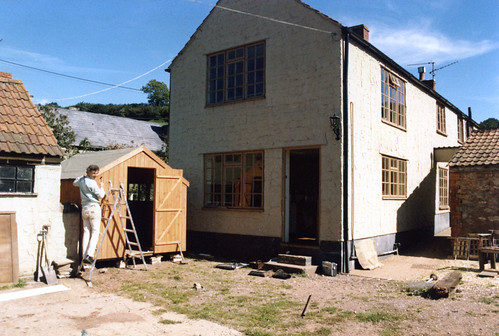Clive Palmer to launch million-dollar ad blitz for no vote in voice referendum
Clive #Clive

The campaign against the voice will be supported by millions of dollars from mining magnate Clive Palmer, who will reportedly launch an ad blitz against the referendum in the final fortnight.
Both the yes and no campaigns are preparing for a final sprint to the 14 October polling day, with major ad buys to target key states in the referendum.
Palmer, the leader of the United Australia party (UAP), told the Australian newspaper he would soon launch advertising for a vote against the Indigenous voice with major campaigns in South Australia and Tasmania.
“We’ll be advertising in all the states but will be focusing on them. It’s cheaper to spend advertising in Tassie and South Australia,” Palmer said.
The Australian reported he would spend some $2m on ads.
Guardian Australia reported on Friday that spending on digital advertising has surged in the key battleground states of Tasmania and South Australia, with prominent pages supporting the yes and no campaigns showing a heavy focus on those two states.
Tasmania and South Australia are expected to be among the most hard-fought jurisdictions in the referendum. Both campaigns believe Queensland and Western Australia may lean no, but the yes camp is optimistic that New South Wales and Victoria will support the voice.
Questions about Palmer’s potential involvement in the no campaign have been raised, considering his $100m spend in previous federal elections.
Palmer’s representative hasn’t responded to earlier enquiries about whether the businessman would lend support or funds to the no campaign, and did not respond to Guardian Australia’s request for comment on Friday morning.
Palmer last week posted a campaign-style video to his Twitter account, in the style of his previous UAP election ads. The caption read: “Let’s not divide Australia with race-based laws.” The 15-second clip carried an authorisation message from “Clive Palmer, for Mineralogy Pty Ltd, Brisbane”.
Palmer’s major intervention into the campaign so far was to mount a federal court challenge against the Australian Electoral Commission’s long-standing conventions on counting ticks and crosses on ballot papers. The challenge, brought by Palmer and UAP senator Ralph Babet, was rejected.
Palmer has given several television interviews to criticise the voice and the referendum, as well as publishing several social media posts urging a no vote, but neither Palmer nor the UAP appear to have expended funds on anti-voice advertising so far.
As of Friday morning, neither Palmer or the UAP were paying to boost advertisements on Facebook or Google. Babet was boosting a single post related to the referendum, paying less than $100 for a news report on the outcome of the federal court case about ticks and crosses.
Babet said he was unable to share details of Palmer’s promised ad spend, when contacted by Guardian Australia on Friday, but commented: “If his [Palmer’s] history is anything to go by, we can be sure it’ll be substantial.
“The reason for that is he cares about the country, cares about the direction of the Australian community. He, like me, doesn’t want to see our country divided by the colour of people’s skin,” Babet said.
The Victorian senator has long-opposed the voice referendum, and said he would continue to campaign against it in his home state and also South Australia.
skip past newsletter promotion
Our Australian morning briefing breaks down the key stories of the day, telling you what’s happening and why it matters
Privacy Notice: Newsletters may contain info about charities, online ads, and content funded by outside parties. For more information see our Privacy Policy. We use Google reCaptcha to protect our website and the Google Privacy Policy and Terms of Service apply.
after newsletter promotion
The no campaign has attempted to paint itself as the underdog in the referendum, regularly drawing attention to the number of large corporations that have supported the yes campaign.
Palmer was named Australia’s fifth-richest person, with $23.66bn in wealth, on the Australian Financial Review’s annual “rich list” this year.
Visy Industries boss Anthony Pratt, third on the rich list, reportedly donated $1m to the yes campaign earlier this year, according to the Nine newspapers.
Fair Australia, the main no campaign group, recently ran a fundraising drive seeking $250,000 in donations, which it said would be “doubled by a $250,000 Matching Fund – thanks to Simon Fenwick, a generous supporter”.
Fenwick, a former fund manager, has been a longstanding and generous backer of Advance, the conservative lobby group behind Fair Australia. The no campaign ran an additional $250,000 donation-matching drive in April, backed by Fenwick. He and his wife, through investment vehicles, previously donated a combined $1m to Advance, according to 2021-22 disclosures lodged to the Australian Electoral Commission.
Yes23 is expected to launch a fresh advertising campaign in coming days, its third major broadcast advertisement of the referendum following a recent ad featuring an Indigenous child.
The Uluru Dialogue, the other major yes organisation, has been prominently advertising through the football final series. Yes sources have recently downplayed prior expectations that the NRL and AFL grand finals, to be held this weekend, would feature major pro-voice messages.
The yes groups have long stated that their main ad blitz would occur in the referendum’s final two weeks, with a major campaign expected in the final fortnight. But sources have also consistently strongly downplayed claims from the no side that they had a $100m war chest.
Yes sources have said their total receipts for the whole campaign were less than half that figure.